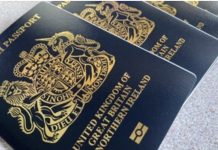Trip Advisor is failing to stop a flood of fake and suspicious five-star reviews from artificially boosting the ratings of some of its highest-ranked hotels, a Which? Travel investigation has revealed.
The consumer champion analysed almost 250,000 reviews for the top 10 ranked hotels in 10 popular tourist destinations around the world – and flagged one in seven of these 100 hotels as having blatant hallmarks of fake reviews, while others raised serious concerns.
Which? Travel reported 15 of the worst cases to TripAdvisor and it admitted that 14 of these had already been caught with fake positive reviews in the last year.
The world’s biggest travel website revealed six of these hotels had been penalised for breaking guidelines and two had previously been given a “red badge” warning for suspicious activity, yet this was not made clear to travellers and a highly suspicious pattern of reviews had continued to appear – suggesting a lack of serious ongoing oversight and action to address repeated abuse of the system.
Following Which? Travel’s investigation, TripAdvisor has taken down hundreds of reviews, while Travelodge admitted having previously been hit with the website’s most severe red badge warning for suspicious reviews after two of its hotels in London were flagged in the research.
There were striking results in the Middle East, with a hugely suspicious pattern of reviews at the ‘best hotel’ in the whole of Jordan. The hotel denies doing anything wrong but shortly afterwards TripAdvisor removed 730 of its five-star reviews.
Despite this it is still listed as one of the 10 best-ranked hotels in the increasingly popular holiday destination, with holidaymakers none the wiser.
At the best hotel in Cairo, according to TripAdvisor’s traveller rankings, a startling 79 per cent of five-star reviews were left by profiles that had no other contributions on the site. Compare that with the results for three-star reviews – a rating less likely to be fake – at just 14 per cent. Shortly after Which? shared its findings, TripAdvisor removed reviews from the property and it lost its status as the official ‘best hotel in Cairo’.
Some of the most concerning findings were in Las Vegas, where two of the 10 highest ranked hotels had received almost half (48% and 41%) of their hundreds of five-star ratings from first-time reviewers who had never made any other TripAdvisor contributions before or since – raising suspicions that the reviews could be fake. Two more of the city’s top 10 hotels had results that were less dramatic but caused concerns.
By contrast, another hotel near the top of the Las Vegas rankings had just three per cent of its almost 2,000 five-star reviews from once-only reviewers. This was consistent with the proportion of once-only reviewers giving three stars.
Some of the best-rated hotels in London, Paris, Barcelona and Cape Town gave some reason for suspicion but had none of the similar extreme patterns.
Which? Travel also compared 10 London hotels at the two biggest UK chains, Premier Inn and Travelodge.
While Premier Inn did not arouse suspicion, at two of the Travelodges, almost half of the hundreds of five-star reviews – 48 per cent and 40 per cent respectively – came from first-time contributors who’d never reviewed anywhere else. In contrast the figure for once-only three-star reviews was much lower.
TripAdvisor admitted that earlier this year the latter hotel – Travelodge Wembley Central – had already been given its red warning badge. This is the site’s most severe warning, letting travellers know that reviews may have been manipulated by the business and is reserved for cases where a hotel ‘repeatedly fails to remedy its behaviour and refuses to cooperate with TripAdvisor’s investigators.’
Which? believes this research raises a number of serious issues with reviews on TripAdvisor.
Reviews are not verified and therefore it is not clear whether reviewers have even stayed at a hotel when they rate it.
Travellers do not know whether hotels have been trying to cheat the system. Despite 14 of the hotels flagged having had at least one suspicious review removed in the last year, none of them carried any kind of warning at the time Which? looked. And TripAdvisor’s most serious warning – the red badge – remains on hotel sites for just a matter of weeks.
The findings come as the Competition and Markets Authority (CMA) is carrying out a programme of work aimed at tackling the increasing problem of fake and misleading reviews.
Which? believes the regulator should ensure the scope of its investigation includes online sites that host reviews, and that platforms like TripAdvisor should be more responsible for the information presented to consumers.
Which? Travel’s Naomi Leach, said:
“TripAdvisor’s failure to stop fake reviews and take strong action against hotels that abuse the system risks misleading millions of travellers and potentially ruining their holidays.
“Sites like TripAdvisor must do more to ensure the information on their platforms is reliable and if they continue to fall short, they should be compelled to make changes so holidaymakers are no longer at risk of being duped by a flood of fake reviews.”







